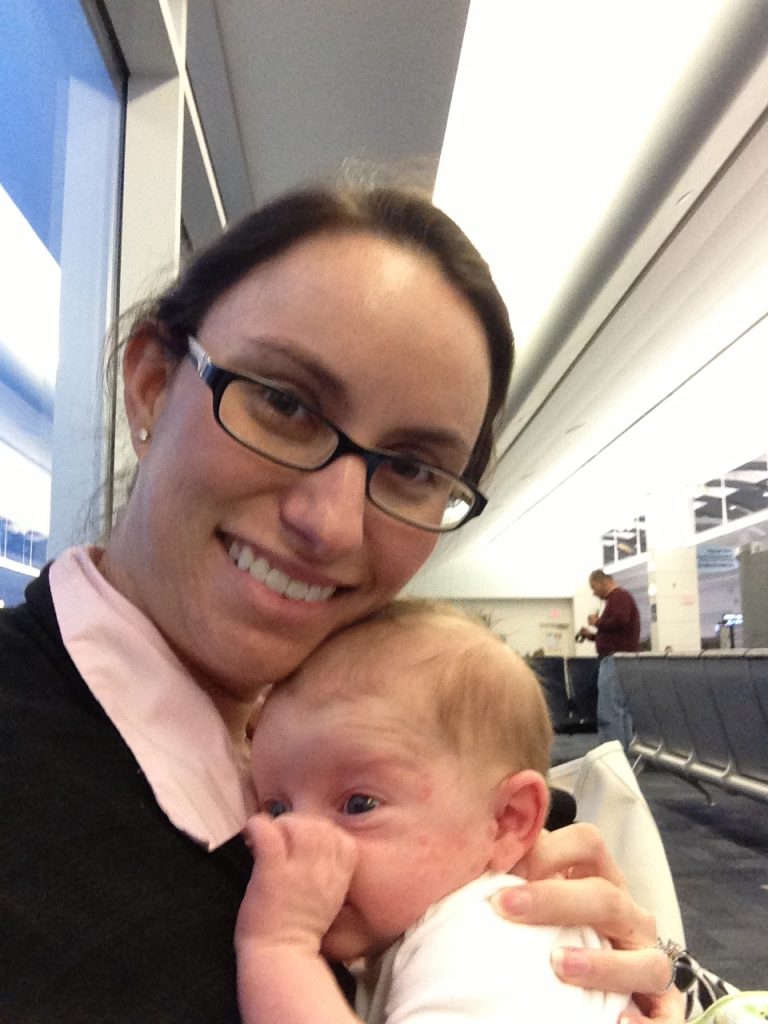
Military families quickly become accustomed to living far away from their family members and loved ones. The distance is challenging in the best of times, but what happens if a close family member becomes ill or is diagnosed with cancer and needs help?
This is the story of how this happened nine years ago to my family, and I am sharing it in the hope that it may help others care for their relatives.

In 2011, my mother was diagnosed with stage 3 pancreatic cancer. She was living in Florida, and my husband and I were living in Norfolk, VA where he was stationed. I was four months pregnant with our first child. Thankfully, it was summertime and as a teacher, I was able to make arrangements to fly down to be with her for follow-up appointments and to discuss her treatment plan.
The cancer had already spread to beyond her pancreas, and the plan was to start receiving chemotherapy treatments as soon as possible. I was fortunate that I could stay with her for a few weeks over the summer, but I was starting a new teaching job in the fall.
For the next 15 months I juggled a job, a newborn, and visiting my ill mother every other month.
My mom was an only child with only one family member nearby. Her care and end-of-life planning were ultimately in the hands of my younger sister and me, who at the time were in our mid-twenties. It was overwhelming!

Our mother had already drawn up a will, advanced healthcare directive, and power of attorney when she had spinal surgery two years prior. Those documents were essential to helping guide treatment decisions, and ultimately taking care of things after she passed away in 2012.
In addition to the legal documents, my mother and I discussed her wishes before her spinal surgery, and I knew from that experience what her desires were for end-of-life care. Those conversations with my mom were foundational in helping to make major decisions, like when to discontinue cancer treatment and eventually when mom would enter hospice.
A few months into my mom’s treatment, I realized that I needed extra help.
The pressure of a new marriage, a new teaching job, motherhood, and my mother’s battle with cancer was too much for me to handle on my own. I tried talking with my spouse and friends, but I soon recognized that I needed to seek out mental health counseling. I started receiving treatment from a therapist a week later, and I honestly don’t know how I would have been able to hold it all together had I not sought help.
As a military spouse, I urge you and your family to prepare for unexpected medical conditions or accidents by preparing as much as you can in advance.
Did you know that nearly 60% of Americans don’t have a will? As the COVID-19 pandemic has highlighted, you can never be over prepared when it comes to taking care of your own health or the health of your family members, and this also includes estate planning. Furthermore, I encourage you to discuss these things with your own parents and other family members, particularly if you are the closest or only family member available to care for them.
Here are a few tips from a seasoned spouse who has cared for a terminally ill parent as well as a sibling who underwent a high-risk surgery this past year:
Get a will or update an old will.
It is particularly important to update your will after the birth of a child or a major life event, like the death of a spouse or guardian. Without a valid will on file, you won’t have control over who will receive your property or other valuables in the event of your death.
Get life insurance or update your policy.
Did you know that you may not be able to purchase or change life insurance policies if you are living overseas? Make sure that you have the proper coverage now before you have a change in life circumstances, such as an OCONUS move or a cancer diagnosis that could disqualify you from coverage.
Seek mental health services for you or your loved ones.
Whether you or your family member are battling a disease or the loss of a loved one, you may benefit from mental health services like counseling. Military families have access to a variety of mental health counseling through Tricare, Fleet and Family Services, Chaplains, Military One Source and more.
Communicate with your spouse and family.
Talk with your loved ones now to ensure your final wishes before there is an emergency or illness.
Make memories while you are able.

Consider scheduling a photoshoot or asking a friend to take pictures of your family with the member who is ill, if possible prior to starting treatment. Visit your sick family member when you can, as their health and treatment plan can change unexpectedly.










